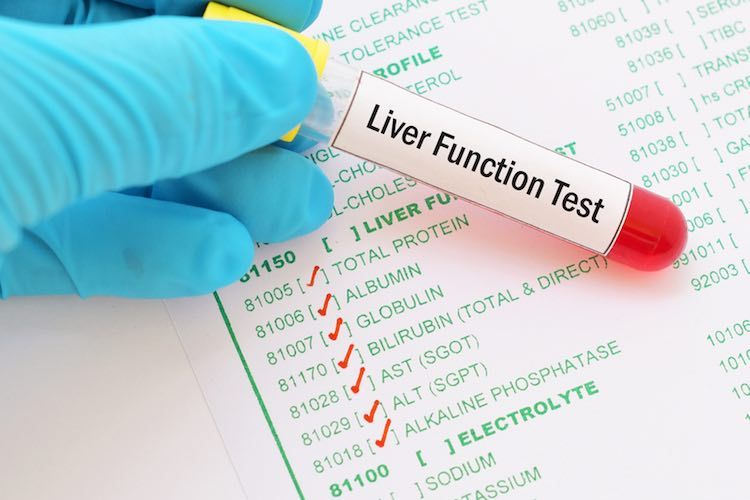
Liver Function Testing is one of those tests that can be a bit daunting to interpret. There are a lot of markers and sometimes they fluctuate together! It can be a bit overwhelming. Yes Liver Function Testing has it’s complexities but I would like to share with you 3 useful tips to get you started interpreting this test straight off the bat.
These are tips that come from my own method of interpreting results and they are usually the first things I check when I get LFT results.
So here are my 3 top tips:
1. Hydration Matters
Did you know that if your patient had their blood collected whilst dehydrated, it will show up in their LFT test results. It does! I have often had practitioners become concerned with results when it turns out, the patient just hadn’t had enough to drink that day!
The primary marker in a LFT that is affected by dehydration is the total protein count. The total protein will unaccountably elevate even with no evidence of excessive protein intake from the diet. Or issues with the liver or reticuloendothelial system that may be upregulating protein production.
So if you see elevated total protein in your patient’s test results, remember to ask your patient, “did you have enough to drink on the day you had your blood collected?” Most likely, they did not.
2. How to Tell if you Patient is Still Drinking
When it comes to liver health, alcohol can be a huge factor that leads to damage and disease. Often as practitioners we will recommend to our patients that they reduce or stop drinking alcohol to try and inhibit further damage.
But obviously this can be hard for someone who has relied on drinking alcohol as a social outlet, as a pass time or even as a remedy for stress and anxiety.
Often patients may bend the truth about lowering or stopping drinking of alcohol, which can make it hard to understand why treatments aren’t working. Or why damage is still persisting.
In a LFT the marker Gamma Glutamyl Transferase (GGT) is a very sensitive marker for ongoing alcohol consumption. Levels will continue to be elevated as long as chronic drinking continues. So this marker is exceptionally useful in being able to discern whether your patient has been able to kick the drink or whether they are still struggling with it.

3. Obesity is an Enzyme Elevator
There are a lot of things that can potentially elevate the liver function enzymes: Aspartate transaminase (AST), Alanine transaminase (ALT), Alkaline Phosphatase (ALP) and Gamma Glutamyl Transferase (GGT).
But one big factor that can elevate liver enzymes is obesity. Obesity can particularly elevate AST and ALT enzymes. Obesity is a huge health problem in today’s society. Obesity puts added pressure upon all systems of the body and the liver can often be the most severely affected. Fatty liver disease, liver hypertrophy, nodules and changes to liver tissue texture can all occur as a result of chronic obesity. And this kind of damage will usually show up in the LFT results.
So when you see elevated enzymes (particularly AST and ALT) take into account whether the patient is overweight or obese. Particularly if the excess weight is chronic rather than just a transient fluctuation in weight.
Though Body Mass Index (BMI) is not always a reliable indicator in patients with higher muscle mass, calculating your patient’s BMI along with waist circumference will help to give you an idea as to whether excess adipose tissue stores may be damaging the liver and affecting LFT results.
A BMI of 25 or over indicates the patient may be overweight.
A BMI over 35 indicates Obesity.
You can use the Heart Foundation BMI Calculator to help work out your patient’s BMI.
A waist circumference over 80cm for women and 94cm for men is an indicator of a higher likelihood of heart and liver disease.
Head to Very Well Fit for tips on measuring waist circumference.
For a useful tool that combines both BMI and waist circumference head to the Mayo Clinic Calculator.
